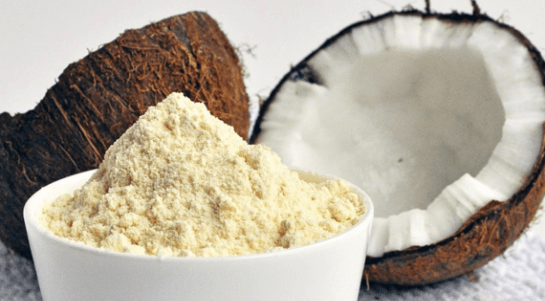Just In
- 2 hrs ago

- 5 hrs ago

- 6 hrs ago

- 8 hrs ago

Don't Miss
- Movies
 Aavesham OTT Rights: Fahadh Faasil's Latest Action Comedy By Jithu Madhavan Closes A Crazy Deal
Aavesham OTT Rights: Fahadh Faasil's Latest Action Comedy By Jithu Madhavan Closes A Crazy Deal - News
 Neha Was Friends With Accused Fayaz, Not Lovers, Says Victim's Father
Neha Was Friends With Accused Fayaz, Not Lovers, Says Victim's Father - Sports
 IPL 2024: Has KL Rahul Entered The Conversation For A T20 World Cup Spot?
IPL 2024: Has KL Rahul Entered The Conversation For A T20 World Cup Spot? - Education
 UP Board 12th Result Toppers List 2024; Check the Names, Ranks, Marks and Districts here
UP Board 12th Result Toppers List 2024; Check the Names, Ranks, Marks and Districts here - Finance
 Elon Musk Postpones India Trip, Tesla's Indian Market Entry Delayed
Elon Musk Postpones India Trip, Tesla's Indian Market Entry Delayed - Technology
 Best Noise-Cancelling Earbuds Under Rs 5,000: CMF Buds Pro, Redmi Buds 5, Realme Buds Air 5, and More
Best Noise-Cancelling Earbuds Under Rs 5,000: CMF Buds Pro, Redmi Buds 5, Realme Buds Air 5, and More - Automobiles
 Tesla CEO Elon Musk's Much-Awaited Visit to India Deferred, Leaving Questions Unanswered
Tesla CEO Elon Musk's Much-Awaited Visit to India Deferred, Leaving Questions Unanswered - Travel
 Journey From Delhi To Ooty: Top Transport Options And Attractions
Journey From Delhi To Ooty: Top Transport Options And Attractions
Coconut Flour’s Nutritional Benefits And How To Consume It
Coconut is a versatile superfood which can be eaten in any form - be it coconut water, shredded coconut, coconut oil and now coconut flour. Yes, coconut flour is currently growing popular because of its numerous health benefits.
Coconut flour is better for you than the other flours because it's gluten-free and delicious. It is made by straining and separating the coconut milk from the coconut pulp and then completely drying it out.

You will be surprised to know that coconut flour is high in fibre, healthy fats and protein. It's also low in sugar, carbohydrates and calories and has a low glycemic index.
What Are The Nutritional Benefits Of The Coconut Flour?
1.
Keeps
your
blood
sugar
levels
normal
2.
Speeds
up
your
metabolism
3.
Promotes
proper
bowel
movements
4.
Lowers
cholesterol
5.
Helps
in
building
muscles
6.
Helps
treat
skin
infections
7.
Prevents
inflammation

1. Keeps your blood sugar levels normal
According to the American Diabetic Association, fat and fibre tend to lower the glycemic index in a particular food which is why coconut flour has a low glycemic index (GI). This means having it will not cause a spike in your blood sugar levels. Studies have also shown that glycemic index foods such as coconut support stable blood sugar levels which is effective for diabetic patients. This can also help diabetics to maintain a healthy weight.

2. Speeds up your metabolism
Coconut flour contains high levels of healthy saturated fats in the form of medium chain fatty acids (MCFA). These fatty acids are used by the body quickly to provide energy and help increase your metabolism rate, thus boosting your metabolism. MCFAs also increases the body's ability to burn fat.

3. Promotes proper bowel movements
Are you suffering from constipation? Try including coconut flour in your diet as it contains high amounts of insoluble fibre which is essential to promote the easy passing of the stool through the digestive system. Thus it prevents constipation or irregular bowel movements. Fibre also supports the growth of friendly bacteria in the gut, thereby maintaining a good digestive health.

4. Lowers cholesterol
Studies have shown that coconut flour has a high nutrient density which helps in supporting heart health. It has the ability to lower LDL (bad) cholesterol levels and serum triglycerides in people who have high cholesterol levels. This, in turn, increases HDL (good) cholesterol which supports heart health and prevents any kind of heart disease.

5. Helps in building muscles
Another nutritional benefit of coconut flour is it contains a significant amount of protein which contributes to your total daily protein intake that helps in repairing tissues and aids in muscle recovery and growth. Protein is an essential component which helps in building bones, muscles, cartilage and skin.

6. Helps treat skin infections
Organic coconut flour possesses antiviral (acts on lipid-coated viruses), antifungal and antimicrobial properties. The antimicrobial property is due to high lauric acid content in coconut that has been used as a medication for oral infections like mouth sores.

7. Prevents inflammation
Coconut flour is free of gluten, a type of protein found in wheat products which is responsible for the elastic texture of the dough. Too much of gluten consumption causes an inflammatory response in the body which leads to rheumatoid arthritis, a common symptom of gluten intolerance. Gluten may also escalate the risk of metabolic syndrome, obesity, neuropsychiatric symptoms, and cardiovascular risk.

How To Consume Coconut Flour?
Coconut flour is extremely absorbent in nature and a very little amount is required to use in both sweet and savoury dishes. It easily blends well with other ingredients and does not overpower the other tastes because it is unsweetened and has a slight smell and taste.
It is better to combine coconut flour with other flours while baking to get the best results. In cooking, coconut flour can also be used on its own to thicken soups and stews.
Share this article!
-
 healthDo You Keep A Clove Of Garlic Under Pillow? Not To Keep Vampires At Bay, There May Be Scientific Reasons
healthDo You Keep A Clove Of Garlic Under Pillow? Not To Keep Vampires At Bay, There May Be Scientific Reasons -
 healthGet Your Groove On: 5 Health Benefits Of Dancing To Afro Beats
healthGet Your Groove On: 5 Health Benefits Of Dancing To Afro Beats -
 healthIndigenous Delicacies: 5 Rare Indian Wild Foods That Are So Healthy You Should Try It!
healthIndigenous Delicacies: 5 Rare Indian Wild Foods That Are So Healthy You Should Try It! -
 healthHaving Chicken Soup At Home Can Cure These Health Issues
healthHaving Chicken Soup At Home Can Cure These Health Issues -
 healthBoost Your Health with Beetroot: Health Benefits And Ways To Add The Colourful Veggie In Your Diet
healthBoost Your Health with Beetroot: Health Benefits And Ways To Add The Colourful Veggie In Your Diet -
 healthHealth Benefits Of Garam Masala: From Digestion To Weight Loss, Proper Use Can Yield Many Benefits
healthHealth Benefits Of Garam Masala: From Digestion To Weight Loss, Proper Use Can Yield Many Benefits -
 healthAyurvedic Wisdom: Panchamrit's Surprising Health Benefits
healthAyurvedic Wisdom: Panchamrit's Surprising Health Benefits -
 healthUnveiling the Power of Turmeric Ghee: An Ancient Ayurvedic Secret!
healthUnveiling the Power of Turmeric Ghee: An Ancient Ayurvedic Secret! -
 healthPlant-Based Diet And Nutrition: Your Key To A Stronger Immune System!
healthPlant-Based Diet And Nutrition: Your Key To A Stronger Immune System! -
 healthExperience the Healing Power of Indian Herbal Teas!
healthExperience the Healing Power of Indian Herbal Teas! -
 healthInternational Cat Day 2023: Did You Know That Cat Purring Can Benefit Your Health? Check Out How!
healthInternational Cat Day 2023: Did You Know That Cat Purring Can Benefit Your Health? Check Out How! -
 healthHeart-Healthy Breakfast: Discover The Benefits Of Frozen Strawberries
healthHeart-Healthy Breakfast: Discover The Benefits Of Frozen Strawberries


 Click it and Unblock the Notifications
Click it and Unblock the Notifications



